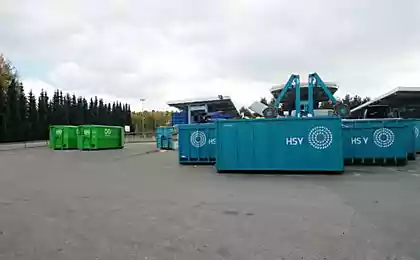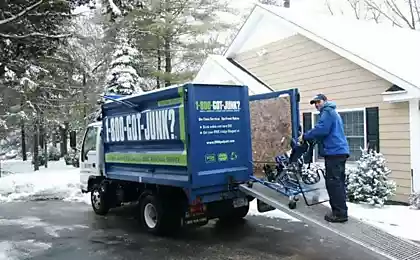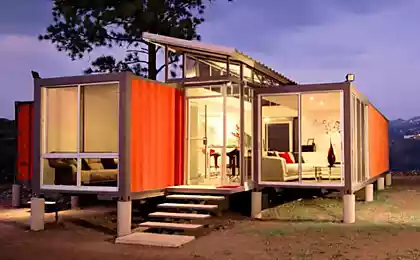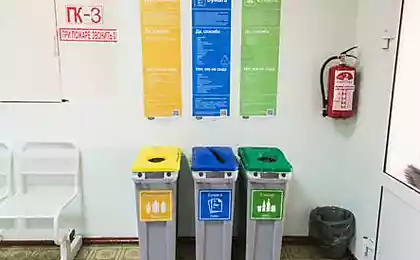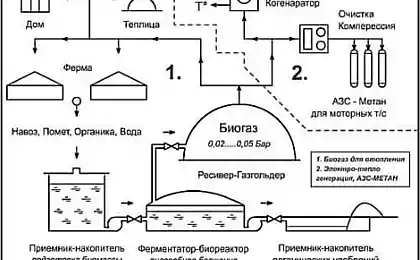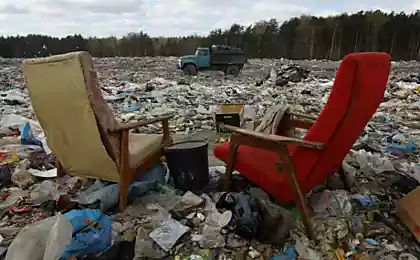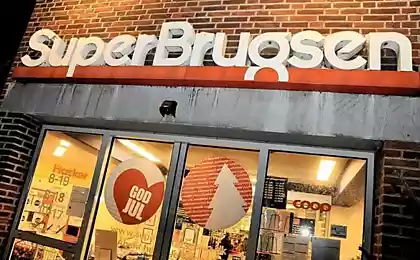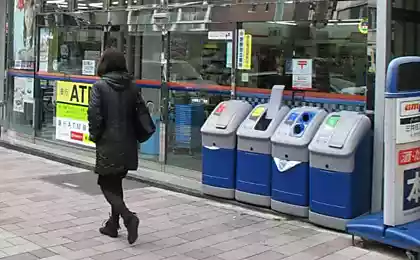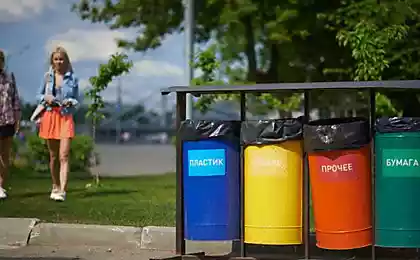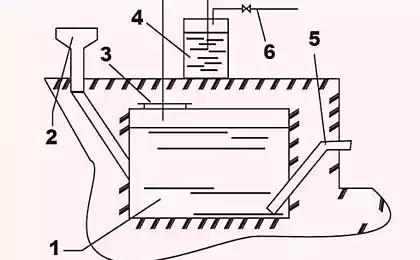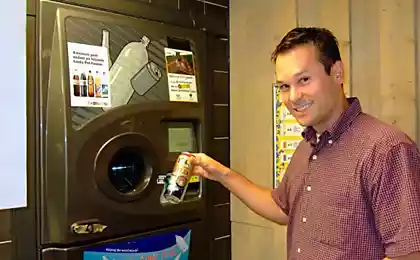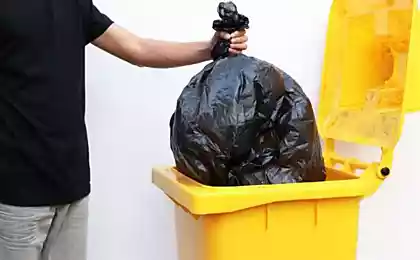574
How to achieve the installation of containers for hazardous waste from its management company
We often talk about the most global issues – deforestation, construction of chemical plants, pollution of water bodies, often leaving out the problems of the waste generated in our daily life.
No matter how we try to live eco-friendly lifestyle, sooner or later we have house batteries, burnt out bulbs are the old mercury thermometers, etc Not knowing where to take these hazardous waste, many are seeking just to get rid of them, throwing in the garbage. Now imagine how colossal the environmental impacts of such actions within the framework of our great country, where all the garbage just continues to be stored on common grounds in the open air.
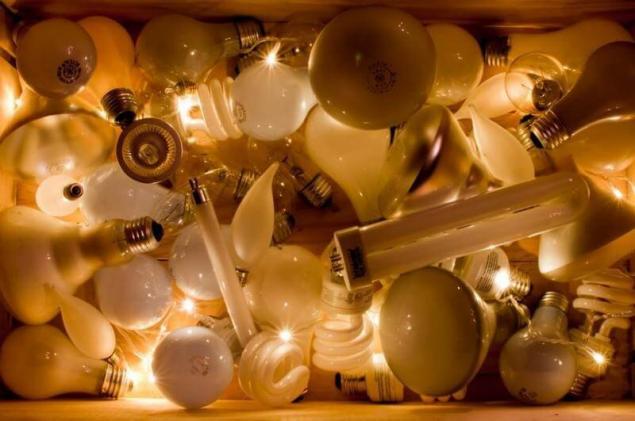
Many now certainly be surprised when they find out that currently a fully approved legal framework which allows you to arrange the free collection of hazardous waste in any apartment building in any yard.
According to the new wording of the Federal law of 24 June 1998 n 89-FZ "On wastes of production and consumption" all waste depending on the degree of negative impact on the environment are divided into 5 classes: extremely hazardous (class I); high; moderate hazard; low hazard and virtually non-hazardous waste (class V).
However, according to the Minimum list of services and works necessary for the proper maintenance of the common property in an apartment house, approved by the Decree of the RF Government dated 3 April 2013 No. 290, "the collection of waste I – IV hazard classes (spent mercury-containing lamps, etc.) and their transfer to the specialized organizations having the license for implementation of activity on collecting, use, neutralization, transportation and placement of such wastes" related to the mandatory services rendered by the management company of the apartment building to tenants (p. 26).
What types of waste will be affected by this rule? The criteria for classifying wastes to specific hazard classes according to the degree of negative impact on the environment approved by order of Ministry of natural resources and ecology of the Russian Federation of 4 December 2014, No. 536.
It is a document of very narrow specialization, containing a large number of formulas comprehensible only to specialists, but we can say with full confidence that any waste containing mercury (thermometers, lamps), and cells (all types of batteries and rechargeable batteries) are a class of waste is not below the second (highly hazardous).
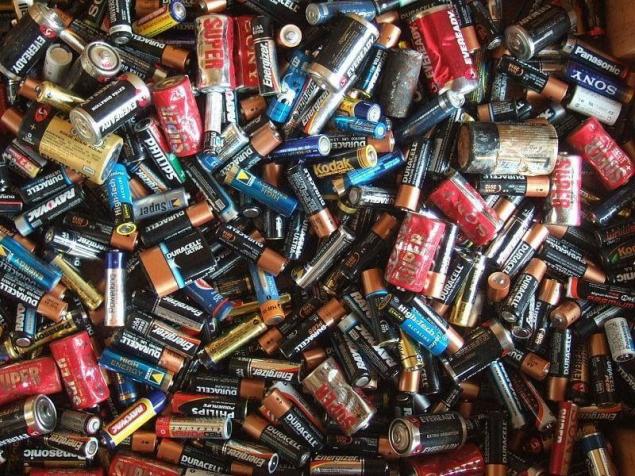
As for mercury-containing lamps, the rules of collection, storage and disposal approved by a special Resolution of the RF Government dated September 3, 2010 № 681, according to which the responsibilities for the collection and disposal of these lamps is directly assigned to management companies of apartment buildings, and in the case of their absence – in local governments.
Thus, the legislation is now fully on the side of environmentally active citizens, you only need to give it a push and to put into practice. For this, we recommend to write a letter to the management company of apartment houses.
A copy of the letter can be sent along with the management company, in the district Council. Of course, it is unlikely that you will succeed with the first attempt to achieve the appearance of the container in the entrance, most likely this requirement will be for the management company a complete surprise, and not all municipalities are the licensed company on the further disposal of such waste.
Neuroeconomics: how do we decide the risk and cooperate
How to start your own business, not going to work: 5 tips
However, the process will be started and will continue to make complaints to the authorities of the environmental Prosecutor, Rosprirodnadzor and further down. published
Author: Kirill Senchev
Source: ecamir.ru/experts/Kak-dobitsya-ustanovki-konteynerov-dlya-opasnyih-othodov-ot-svoey-upravlyayuschey-kompanii.html
No matter how we try to live eco-friendly lifestyle, sooner or later we have house batteries, burnt out bulbs are the old mercury thermometers, etc Not knowing where to take these hazardous waste, many are seeking just to get rid of them, throwing in the garbage. Now imagine how colossal the environmental impacts of such actions within the framework of our great country, where all the garbage just continues to be stored on common grounds in the open air.

Many now certainly be surprised when they find out that currently a fully approved legal framework which allows you to arrange the free collection of hazardous waste in any apartment building in any yard.
According to the new wording of the Federal law of 24 June 1998 n 89-FZ "On wastes of production and consumption" all waste depending on the degree of negative impact on the environment are divided into 5 classes: extremely hazardous (class I); high; moderate hazard; low hazard and virtually non-hazardous waste (class V).
However, according to the Minimum list of services and works necessary for the proper maintenance of the common property in an apartment house, approved by the Decree of the RF Government dated 3 April 2013 No. 290, "the collection of waste I – IV hazard classes (spent mercury-containing lamps, etc.) and their transfer to the specialized organizations having the license for implementation of activity on collecting, use, neutralization, transportation and placement of such wastes" related to the mandatory services rendered by the management company of the apartment building to tenants (p. 26).
What types of waste will be affected by this rule? The criteria for classifying wastes to specific hazard classes according to the degree of negative impact on the environment approved by order of Ministry of natural resources and ecology of the Russian Federation of 4 December 2014, No. 536.
It is a document of very narrow specialization, containing a large number of formulas comprehensible only to specialists, but we can say with full confidence that any waste containing mercury (thermometers, lamps), and cells (all types of batteries and rechargeable batteries) are a class of waste is not below the second (highly hazardous).

As for mercury-containing lamps, the rules of collection, storage and disposal approved by a special Resolution of the RF Government dated September 3, 2010 № 681, according to which the responsibilities for the collection and disposal of these lamps is directly assigned to management companies of apartment buildings, and in the case of their absence – in local governments.
Thus, the legislation is now fully on the side of environmentally active citizens, you only need to give it a push and to put into practice. For this, we recommend to write a letter to the management company of apartment houses.
A copy of the letter can be sent along with the management company, in the district Council. Of course, it is unlikely that you will succeed with the first attempt to achieve the appearance of the container in the entrance, most likely this requirement will be for the management company a complete surprise, and not all municipalities are the licensed company on the further disposal of such waste.
Neuroeconomics: how do we decide the risk and cooperate
How to start your own business, not going to work: 5 tips
However, the process will be started and will continue to make complaints to the authorities of the environmental Prosecutor, Rosprirodnadzor and further down. published
Author: Kirill Senchev
Source: ecamir.ru/experts/Kak-dobitsya-ustanovki-konteynerov-dlya-opasnyih-othodov-ot-svoey-upravlyayuschey-kompanii.html
How to put your child in lessons without nerves
What is a healthy person, who is OK to control the level of insulin in the blood?

